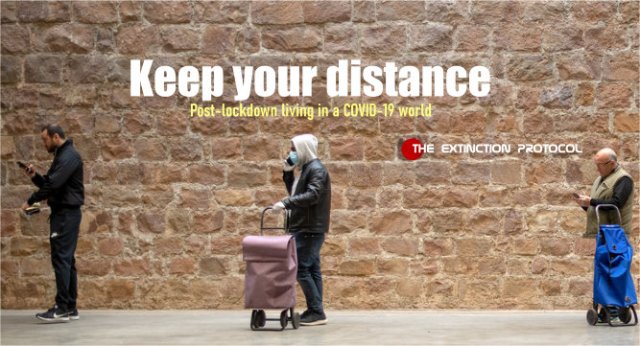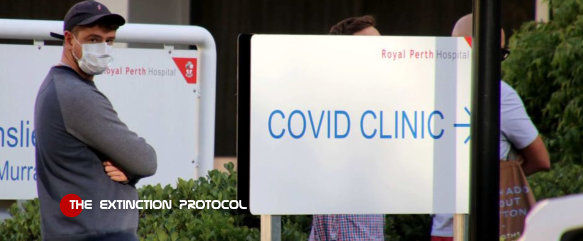
As countries lie frozen in lock-down and billions of people lose their livelihoods, public figures are teasing a breakthrough that would mark the end of the crippling coronavirus pandemic: a vaccine. But there is another, worst-case possibility: that no vaccine is ever developed. In this outcome, the public’s hopes are repeatedly raised and then dashed, as various proposed solutions fall before the final hurdle.

Grim new reality: If the COVID-19 pandemic persists and we never develop an effective vaccine, we could see so-called COVID clinics popping up all over the world – infectious disease control centers, whose only specialty will be in diagnosing and treating patients infected with the coronavirus.
Instead of wiping out COVID-19, societies may instead learn to live with it. Cities would slowly open and some freedoms will be returned, but on a short leash, if experts’ recommendations are followed. Testing and physical tracing will become part of our lives in the short term, but in many countries, an abrupt instruction to self-isolate could come at any time. Treatments may be developed — but outbreaks of the disease could still occur each year, and the global death toll would continue to tick upwards. It’s a path rarely publicly countenanced by politicians, who are speaking optimistically about human trials already underway to find a vaccine. But the possibility is taken very seriously by many experts — because it’s happened before. Several times.
“There are some viruses that we still do not have vaccines against,” says Dr. David Nabarro, a professor of global health at Imperial College London, who also serves as a special envoy to the World Health Organization on COVID-19. “We can’t make an absolute assumption that a vaccine will appear at all, or if it does appear, whether it will pass all the tests of efficacy and safety. “It’s absolutely essential that all societies everywhere get themselves into a position where they are able to defend against the coronavirus as a constant threat, and to be able to go about social life and economic activity with the virus in our midst,” Nabarro tells CNN.
Most experts remain confident that a COVID-19 vaccine will eventually be developed; in part because, unlike previous diseases like HIV and malaria, the coronavirus does not mutate rapidly. Many, including National Institute of Allergy and Infectious Diseases director Dr. Anthony Fauci, suggest it could happen in a year to 18 months. Other figures, like England’s Chief Medical Officer Chris Whitty, have veered towards the more distant end of the spectrum, suggesting that a year may be too soon. But even if a vaccine is developed, bringing it to fruition in any of those time frames would be a feat never achieved before.
“We’ve never accelerated a vaccine in a year to 18 months,” Dr. Peter Hotez, dean of the National School of Tropical Medicine at Baylor College of Medicine in Houston, tells CNN. “It doesn’t mean it’s impossible, but it will be quite a heroic achievement. “We need plan A, and a plan B,” he says. In 1984, the US Secretary of Health and Human Services Margaret Heckler announced at a press conference in Washington, DC, that scientists had successfully identified the virus that later became known as HIV — and predicted that a preventative vaccine would be ready for testing in two years. Nearly four decades and 32 million deaths later, the world is still waiting for an HIV vaccine. –CNN

Comments
Post a Comment